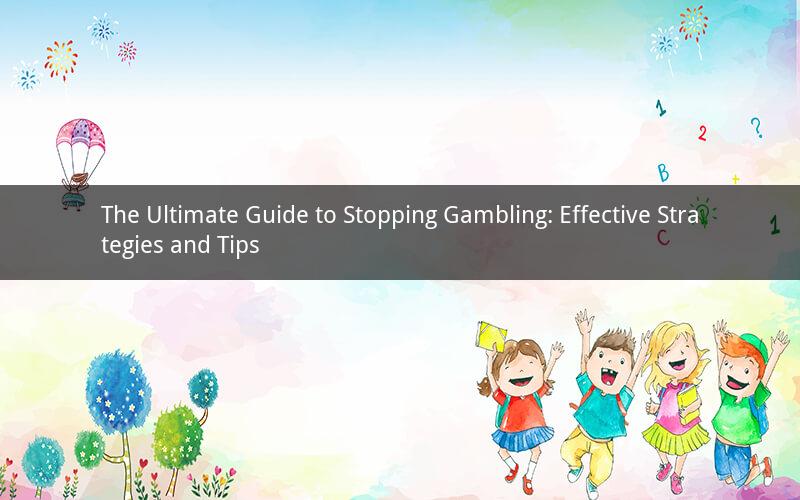
Gambling has been a popular pastime for centuries, but it can lead to addiction and severe consequences if not managed properly. Many individuals struggle with gambling, and finding the best way to stop is crucial. This guide will provide you with effective strategies and tips to overcome your gambling addiction.
1. Understand the Reasons Behind Your Gambling
The first step in stopping gambling is to identify the reasons why you gamble. Is it for entertainment, escape, or a way to cope with stress? Understanding the root causes will help you address them and reduce the temptation to gamble.
2. Set Clear Goals
Establishing clear goals is essential for overcoming your gambling addiction. Set realistic, achievable goals that will guide you through the recovery process. Some examples include:
- Stop gambling for a specific period (e.g., 30 days, 60 days, or 90 days)
- Limit the amount of money you spend on gambling activities
- Seek professional help if needed
3. Create a Support System
Building a strong support system is vital for maintaining your sobriety. Share your goals and struggles with friends, family, or support groups. Consider joining a Gamblers Anonymous meeting or seeking the help of a therapist specializing in gambling addiction.
4. Avoid Triggers
Identify the situations, people, or places that trigger your gambling urge and avoid them. This may include avoiding casinos, online gambling sites, or hanging out with friends who encourage gambling.
5. Develop Alternative Activities
Find healthy alternatives to gambling that will keep you occupied and entertained. Engage in hobbies, exercise, or other activities that provide a sense of fulfillment and joy.
6. Practice Self-Reflection
Regular self-reflection will help you stay mindful of your progress and identify areas for improvement. Keep a journal to track your gambling habits, triggers, and recovery milestones.
7. Seek Professional Help
If you find it challenging to overcome your gambling addiction on your own, seek professional help. Therapists, counselors, and addiction specialists can provide tailored strategies and support to help you recover.
8. Develop Financial Management Skills
Gambling addiction often leads to financial problems. Learn how to manage your finances effectively, create a budget, and avoid spending money on gambling.
9. Monitor Your Progress
Regularly assess your progress and adjust your strategies as needed. Celebrate your milestones and acknowledge your efforts to maintain sobriety.
10. Stay Committed
Overcoming a gambling addiction is a long-term process that requires dedication and perseverance. Stay committed to your goals and maintain your support system to ensure long-term recovery.
Questions and Answers:
1. Q: How can I break the cycle of using gambling as an escape from stress?
A: Identify the root causes of your stress and find healthier ways to cope, such as exercise, meditation, or speaking with a therapist. Engage in activities that provide relaxation and fulfillment, such as hobbies or spending time with loved ones.
2. Q: Can I still enjoy the occasional gamble if I'm trying to overcome my addiction?
A: It's important to set strict boundaries and avoid any gambling activities. Even occasional gambling can trigger relapse and lead to a return to addictive behavior.
3. Q: What should I do if I relapse?
A: If you relapse, don't be too hard on yourself. Acknowledge the setback, analyze the factors that led to the relapse, and seek support from your support system or a professional. Use this experience as a learning opportunity to strengthen your recovery journey.
4. Q: Can my friends and family help me overcome my gambling addiction?
A: Yes, your friends and family can play a significant role in your recovery. Encourage them to support your efforts by participating in Gamblers Anonymous meetings, attending therapy sessions with you, or simply being there to listen and offer encouragement.
5. Q: Is it possible to overcome a gambling addiction on my own?
A: While it's possible to overcome a gambling addiction on your own, seeking professional help can significantly improve your chances of long-term recovery. Professional support can provide personalized strategies, coping mechanisms, and a strong support system to navigate the challenges of recovery.